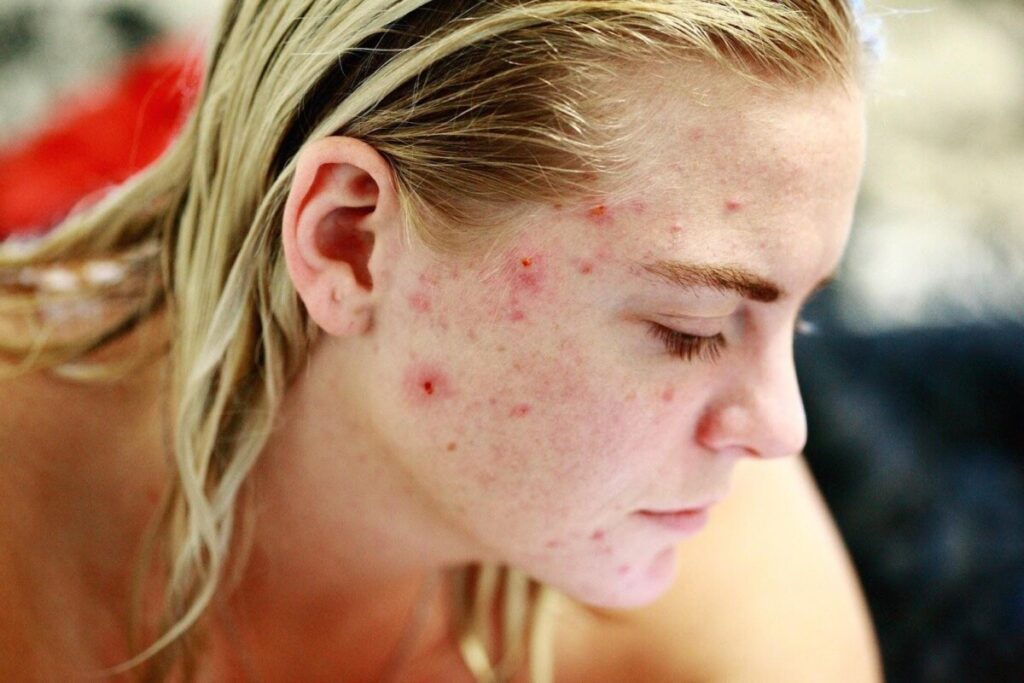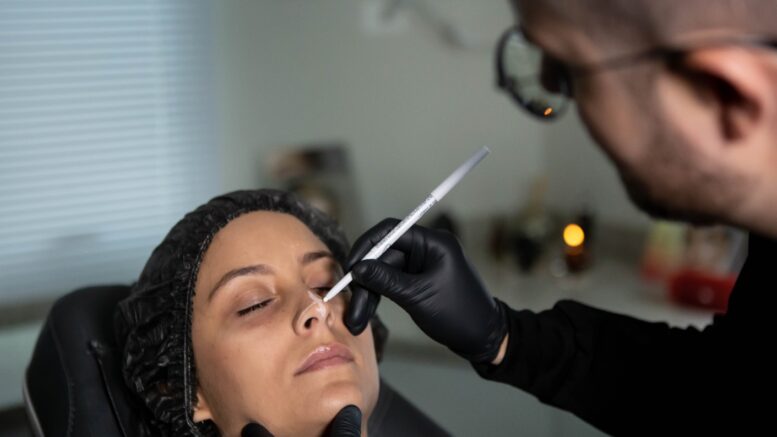Skin is an essential part of our bodies, so taking care of it is necessary. Most people know that they should avoid exposing their skin to the sun and wear sunscreen. But what happens when your skin isn’t just dry or itchy? What if you have a blister or sore that won’t go away? Or maybe you see pus-filled blisters or sores on your face or body.
These are all signs that something’s wrong with your skin and that you should see a dermatologist ASAP.
When Should You Visit a Dermatologist?
If you have a skin problem that is not getting better or is getting worse, it’s time to see a dermatologist. A visit to the dermatologist can help diagnose your condition and give you the right treatment plan.
If you have a new skin condition that has never happened before, it’s best to see your skin doctor as soon as possible. They can determine what’s going on with your skin and whether or not there are any serious issues involved.
Additionally, if your skin issue is severe or persistent, a dermatologist can help you figure out what treatment options are best for you. According to IBIS World, around 5,279 dermatologists in the US provide their services, so you can visit them if you find any critical skin symptoms. It is best to visit a dermatologist at least once every three months so that they can help you with any problem that might arise.
Your skin is your most crucial asset, and you should not compromise on its maintenance on any grounds. The best you can do is look for a top-notch dermatologist in your area with a fair experience.
Common procedures and services like botox, hair loss treatments, fillers, lasers, acne scar treatments, and many other cosmetic procedures are also effectively handled in these centers.
Most women ignore common skin problems and get caught up with critical skin illnesses like cancer. The American Cancer Society says that according to an estimate, around 5.4 million squamous cell cancers are diagnosed every year in the US. In addition to these treatments, they ensure that the patient gets the best quality care.
1. Dry, Patchy Skin on Your Face or Body
Dry, patchy skin is a common problem caused by environmental factors like cold weather or low humidity. As you age, the rate at which your skin regenerates slows down and becomes more susceptible to dryness. Certain medications, such as blood thinners and those used for high blood pressure, are also linked to dryness.
If you have recently noticed dry skin patches on your face or body, immediately see a dermatologist. It is especially true if they resemble something other than eczema. According to the National eczema society, about 31 million people in the US live with some form of eczema.
A proper diagnosis will help determine what underlying causes may exist so that treatment can begin immediately.
2. Sensitive or Itchy Skin
If you’re experiencing itchiness, it could be due to an allergic reaction. If this is the case, it’s crucial to identify which ingredients are causing the reaction and avoid them in the future. It may also signify dry skin or eczema that needs immediate attention from your dermatologist.
If you have sensitive skin, it’s recommendable to find a professional who can help you find products that won’t irritate your skin further. For example, avoiding products with fragrances and other ingredients may help limit any irritation caused by certain ingredients and prevent further breakouts if possible.
It’s a good idea to try out new products on a small patch of skin first, such as behind your ear or inside your wrist. This way, you can see if it causes adverse reactions before applying it all over your face. If you experience itching, redness, or any other form of irritation after using the product for several days, stop using it immediately and consult your doctor.
3. Acne Breakouts That Last More Than a Few Weeks
A combination of bacteria, clogged pores, and excess oil production causes acne. Topical medications and oral antibiotics are the best way to treat acne. However, acne can also indicate other health problems, such as underlying hormonal imbalances or compromised liver function.
If your acne doesn’t improve after a few weeks of treatment, it could be a sign that something else is going on under the surface that needs to be addressed by your dermatologist before it gets worse.
Acne breakouts usually resolve on their own within several years. However, some people have persistent acne for life. The severity of the condition varies widely, but some consequences go beyond just looking good in photos.
4. White, Brown, or Red Patches on the Skin
You might think it’s a bruise or blood clot, but any discoloration in your skin should be examined by a dermatologist as soon as possible. While talking about unintentional bodily injuries, let’s talk about something you can do to prevent them; wearing sunscreen.
Sunscreen is an excellent way to prevent sun damage and related conditions like melanoma. However, if you’re worried about looking pasty white, try finding a tinted moisturizer that blends well with your skin tone, so you don’t look like Casper while still being protected from UV rays.

5. Pus-Filled Blisters or Sores That Last for More Than a Few Days
If you notice pus-filled blisters or sores that last more than a few days, it could indicate infection. Infection can occur when the skin becomes damaged and a bacterium gets in.
Pus is a sign of inflammation, usually yellow, green, or white. It can also come out onto your skin from pimples as they drain. If you have any open wounds, it’s necessary to keep them clean, so they don’t get infected by bacteria.
If you have redness around your injured skin area, this may indicate an allergic reaction. It can be caused by chemicals in lotions or soaps used on the area where your skin was injured.
6. Hair Thinning
Several factors can cause hair loss, but you must see a doctor as soon as you think you are losing more hair than usual. Hair loss can be treated if the cause is determined and treatment initiated. Your dermatologist will likely perform an exam and evaluate any other symptoms you may have to determine the cause of your hair thinning.
Some underlying medical conditions may cause you to lose too much hair. These include thyroid disease, iron deficiency anemia, and vitamin deficiencies. The sooner you get treatment for your condition, whether from stress or another factor, the better off you’ll be.
Your Skin is Incredibly Important
Your skin is the largest organ in your body and serves many necessary functions. First, it acts as a barrier between you and the outside world. This layer of protection can come in handy when dealing with anything from mild irritation to serious burns. Skin also protects us from germs and bacteria that could make us sick if they enter our bodies.
In addition to these roles, the skin acts as a sense organ. It helps us feel heat or pain by sending signals through nerves to the spinal cord and brain. Skin also helps regulate body temperature and water balance by producing sweat when we’re hot.
It can be hard to know when something is wrong with your skin, especially if you don’t have much experience with dermatological issues. However, if you notice any changes in how your skin looks or feels that last for more than a few days, it’s best to see a dermatologist immediately to rule out an underlying condition.
